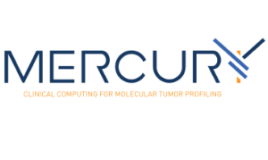Our latest release: MERCURY™ v3.0
We are excited to provide you with important information regarding the release of a new version (v3.0) of MERCURY™. This updated version of MERCURY has a number of changes and improvements designed to enhance data analysis capabilities and the user experience.
MERCURY v3.0 has incorporated a number of enhancements to both analysis pipeline and annotations. This includes:
- The ability to detect germline variants in tumor samples for paired analysis enabling determination of mutation enrichment in LOH regions
- Expansion of mutational signatures – now contains 67 Single Base Substitution (SBS) signatures.
- Enhanced capabilities for fusion transcripts
- Updated fusion transcript detection pipeline and annotation databases – analysis pipeline updated to Trinity Cancer Transcriptome Toolkit (CTAT v1.7.0) and also now refers to the GENCODE database v31.
- New graphical representations for fusions
- Expanded ability to filter for the most relevant fusions
- Improved graphical displays for circos plots and allele frequency (BAF) plots.
- Updated and expanded filtering capabilities with additional capabilities added for improving the classification and display of variants.
Click here to review the complete MERCURY v3.0 Release Notes.
Learn more about MERCURY at www.mercury-oncology.com
MERCURY™ is now customizable for large and small gene panels
MERCURY is now fully adaptable to your data analysis needs with the ability to manage oncology sequencing data ranging from broad sequencing (WES, RNA-Seq, WGS) to large gene panels and down to targeted gene panels. Whether you use an off the shelf 3rd party panel or have developed your own, IntegraGen will work with you to customize the data analysis pipeline and reporting for the clinical sequencing you perform.
Contact us to discuss how MERCURY can meet your custom analysis needs or to request a free demo.


